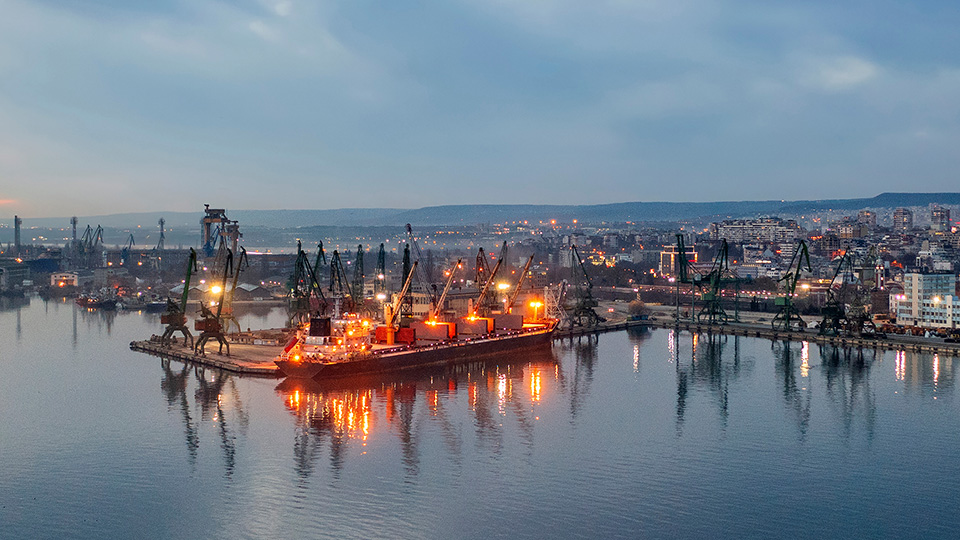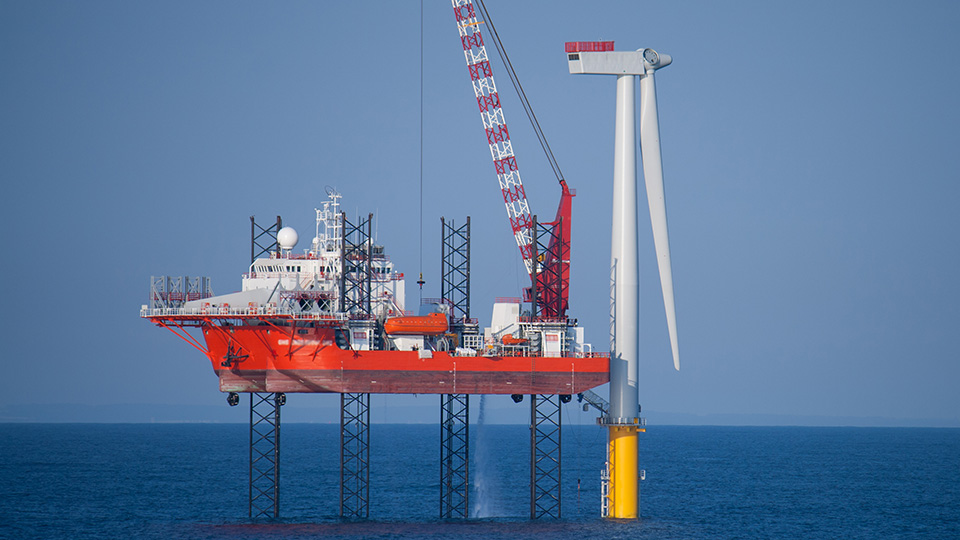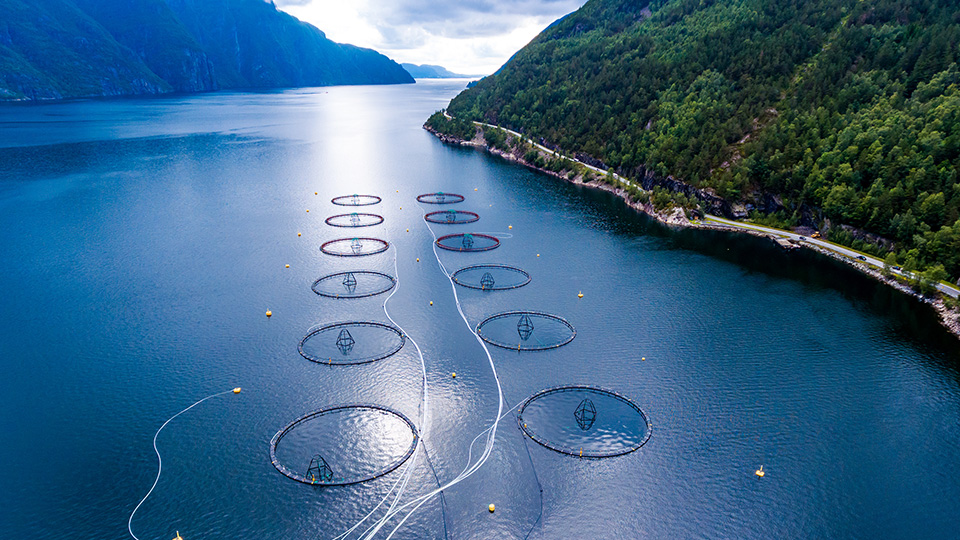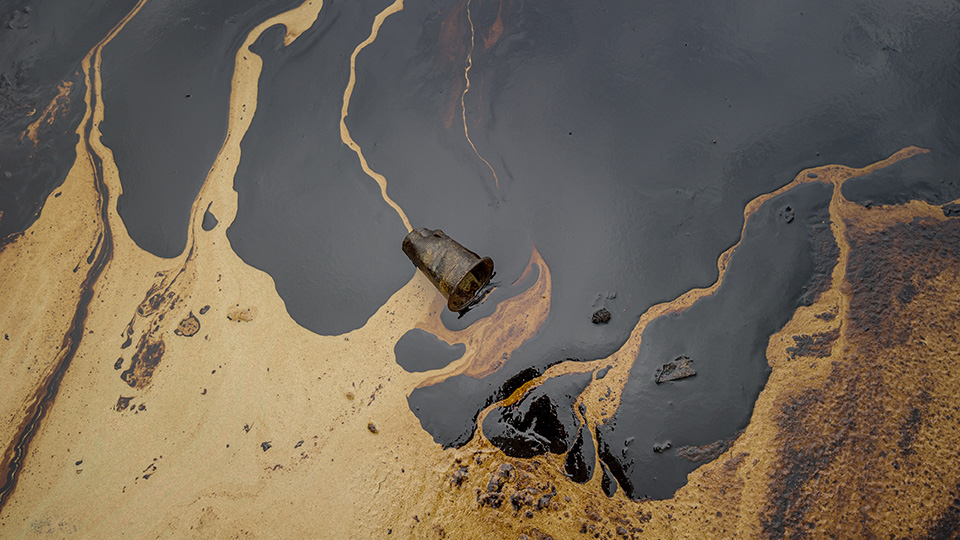Ports and maritime industries play a critical role in the global economy, supporting trade, food security, and sustainable blue growth. However, they are also significant contributors to environmental pressures. In Europe, maritime transport is responsible for approximately 13.5% of total transport-related greenhouse gas (GHG) emissions, with methane emissions from shipping having doubled between 2018 and 2023 due to increased use of liquefied natural gas (LNG) as fuel. Additionally, maritime activities contribute to water pollution through oil spills, wastewater discharge, and marine litter, with container loss remaining a persistent issue for ocean ecosystems (European Environment Agency, 2025).
To address these challenges, European and international policies such as the European Green Deal, the Marine Strategy Framework Directive (MSFD), and the UN Sustainable Development Goals (SDGs) set ambitious targets for emissions reductions, marine biodiversity protection, and sustainable resource management. In this context, Digital Twin Ocean (DTO) technologies offer a powerful tool to enhance policy monitoring, compliance assessment, and governance. The Iliad project, integrating 22 individual digital twins through the "Twin of Twins" concept, provides a scalable and unified framework to analyze environmental impacts, optimize resource management, and drive data-informed policymaking.
This policy toolkit is designed to help policymakers, public authorities, and industry stakeholders effectively utilize Iliad DTOs and related services to align with European and global policy objectives. By leveraging real-time monitoring, predictive modeling, and advanced analytics, these toolkits will support national and regional authorities in implementing marine spatial planning, pollution control, emissions reduction, and the sustainable management of fisheries, aquaculture, and renewable energy. Given the urgent need for climate resilience and environmental protection, this toolkit empowers decision-makers with cutting-edge digital solutions to tackle present and future marine challenges in a science-based and efficient manner.
Target Groups:
- National and Local Authorities: Supporting effective marine spatial planning and resource management.
- Regional and EU Policymakers: Aligning local and regional strategies with global sustainability objectives.
- Businesses: Providing actionable insights for industries such as fisheries, aquaculture, shipping, and renewable energy.
- European Commission and International Organizations: Informing policy development and compliance assessments at broader scales.
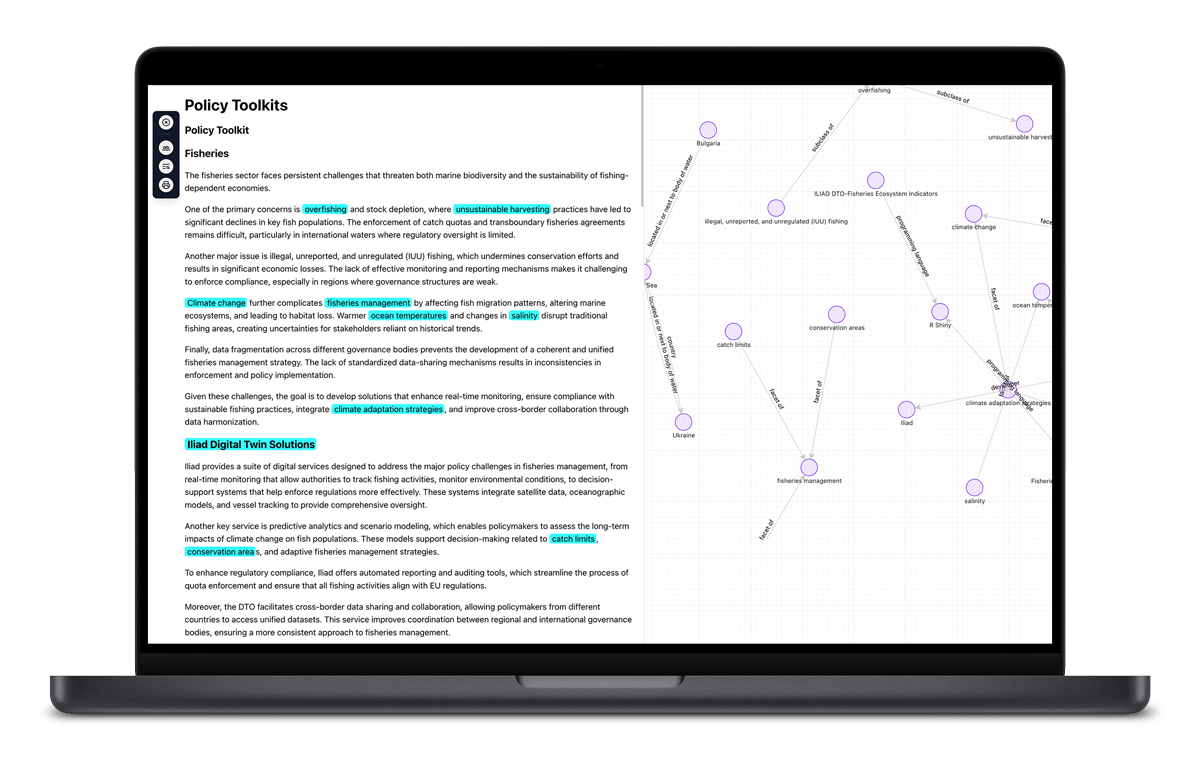
Get deeper insights...
Install the Policy Impact-extension
SemLinked is a browser extension that uses SemFlow to turn web content into interactive learning experiences. It links page text to an online Body of Knowledge, offering in-context definitions, related skills, and external resources. The extension will also help users analyse connections between policy and the ILIAD pilot projects.
SemLinked is available in the Google Chrome Web Store here:
Once the extension is installed, pin its toggle  button to the browser toolbar. This allows parsing of any web page for potential policy impacts (more details here).
button to the browser toolbar. This allows parsing of any web page for potential policy impacts (more details here).
How Iliad contributes to the European Ocean Pact
The European Ocean Pact
On 5 June 2025, the European Commission adopted the European Ocean Pact, an initiative aimed at reinforcing the EU’s commitment to protecting marine ecosystems, supporting the blue economy, and enhancing ocean governance.
The European Ocean Pact delineates a comprehensive strategic agenda centered around six pillars essential for achieving a sustainable and resilient maritime future:
- protecting and restoring ocean health by supporting EU countries in their efforts to restore degraded coastal marine habitats
- enhancement of sustainable competitiveness across all sectors of the blue economy
- socioeconomic fortification of coastal and island communities
- enhancing maritime security and defence by strengthening EU coast guard cooperation and maritime border security
- advancing ocean research, knowledge, skills and innovation by proposing an ambitious EU Ocean Observation Initiative
- amplification of the EU's international leadership in ocean governance and diplomacy
How Iliad Supports the Goals of the European Ocean Pact
The Iliad Digital Twins of the Ocean (DTOs) provide a policy-enabling operational framework that address each of these pillars. Through integrated services across fisheries, aquaculture, port and ship operations, pollution control, and renewable energy, Iliad delivers interoperable, scalable, and evidence-based tools that support Pact targets and boost the European blue economy.
Restoring Ocean Health and Productivity
To directly enable the Pact's 2030 protection goals (protecting 30% of EU seas by 2030), Iliad offers integrated real-time monitoring tools and scenario modeling capabilities. The system's water quality DTOs provide high-resolution assessments of eutrophication, oil spill trajectories, and plastic distribution, enhancing early-warning systems and response coordination. Habitat mapping modules, particularly those used in the aquaculture,fisheries and port pilots, assist in designating and managing MPAs, developing tailored strategies to enhance the resilience and economic sustainability of coastal regions, supporting sustainable fisheries, and offer improved methods of reporting economic and industrial activities. The Thracianand Cretan Sea pilots demonstrate how forecasting platforms and observational data are fused to track pollutant dispersion and guide cross-border mitigation. tracking to fulfill targets under the Marine Strategy Framework Directive (MSFD) and Zero Pollution Action Plan, including eliminating oil spill risks. In parallel, in support of the Pact’s goal of halving plastic litter by 2030, plastic pollution dashboards developed in the Trondheim Fjord pilot enable hotspot detection and MSFD-aligned reporting.
Enhancing the Sustainable Competitiveness of the Blue Economy
Iliad contributes to the blue economy’s transformation by operationalizing decision-support services across key maritime sectors. For fisheries, dynamic dashboards developed under the North Sea and Black Sea pilots integrate stock data, habitat suitability indices, and routing optimization tools, aiding the enforcement of sustainable quotas, aligning with CFP reform and emissions reductions. Aquaculture-specific services, including real-time water quality monitoring and disease spread modeling, empower producers to optimize site selection and reduce environmental footprints and insurance companies to better predict risks and help meet the Pact’s target of improving disease control and reducing antimicrobial use in aquaculture by 50%. In ports, as demonstrated by the Heraklion and Varnapilots, Iliad tools deliver wave forecasting, ship routing optimization, and risk assessment visualizations, improving logistics and compliance. Iliad also supports Pact objectives for decarbonising maritime sectors, promoting innovation, and doubling offshore renewable capacity by 2030. Renewable energy pilots in Portugal, Israel, and Edinburghincorporate marine spatial planning, resource feasibility modeling, and hydro-environmental impact assessments to support sustainable deployment and integrated siting decisions. The Iliad Marketplace makes these applications available and easily accessible to all interested stakeholders. It also provides third party developers the opportunity to have their digital services hosted for higher visibility and commercialisation potential. Complementing these sectoral innovations are 1) the Twin Lab, an exclusive section of the marketplace dedicated to pioneering digital data products and oceanic digital twins that are in the nascent stages of development and 2) the Blue Tech Transfer platform, which facilitates commercialization by connecting research outputs with investors, regulators, and end-users.
Advancing Ocean Research, Knowledge, and Innovation
Iliad operationalizes the European Digital Twins of the Ocean vision by delivering a federated architecture that unites national, thematic, and regional digital twins through open APIs and standardized metadata protocols, supporting scalable data flows and interoperability. The project enables scenario simulation, real-time forecasting, and rapid model iteration. The Iliad Academy serves as the project’s capacity development pillar, supporting Pact goals for capacity-building and digital upskilling by offering modular training, product documentation, and demonstrative tutorials that empower diverse stakeholder groups—including national authorities, researchers, and industry actors—to co-develop, scale, and operationalize data-driven digital ocean solutions. The aforementioned Blue Tech Transfer platform provides research teams and SMEs information and opportunities to develop and commercialize their innovative ideas into competitive products and services in boosting the blue economy. Together, these components accelerate the transition toward a common European Ocean Knowledge System.
Supporting Coastal and Island Communities
To build adaptive and inclusive coastal governance, Iliad provides tools that integrate socio-economic, environmental, and infrastructure data to support community-level resilience planning. Through scenario builders and participatory platforms as deployed in Valencia, Spain and Al-Hoceima, Morocco, and in Romania, local authorities and stakeholders engage in environmental sensing, are empowered to contribute environmental data and co-create adaptation pathways. Multi-use marine spatial planning systems, citizen science applications (e.g. for jellyfish swarm reporting andharbor safety), enhanced by GIS and geospatial analytics, help reconcile conflicting uses and support cohesive development planning. These functionalities support the development of EU-coordinated resilience plans for outermost regions and island communities, as mandated in the Pact’s coastal action framework.
Enhancing Maritime Security and Resilience
Security-oriented services embedded in Iliad’s pilots help address illegal, unreported, and unregulated (IUU) fishing, as well as navigation hazards and cyber-physical threats. VISToolssupports the Belgian fishing fleet with advanced decision-making and reporting tools using sensors installed on vessels to capture key operational data. These include weights of catches per species, fuel consumption, and GPS tracking that logs vessel location and movements. A dedicated onboard device integrates all sensor data and transmits it to the cloud for processing and analysis. The results are then displayed on an interactive Power BI dashboard, providing vessel owners with real-time operational insights. Catch traceability modules support digital certification and enforcement. For port operations, an AR/VR Blind Navigation of Marine Vessels in Varna Port offers ship operators and port authorities enhanced support for maritime surveillance and collision risk prediction, while also simulating vessel traffic management scenarios, including during adverse weather conditions. Across sea basins, high-resolution models forecast oil spills, UXO impacts, and hybrid emergencies, offering authorities the data and tools to implement proactive and coordinated resilience strategies.
Strengthening EU Ocean Diplomacy and International Governance
Aligned with the Pact’s goal to enhance international cooperation and treaty compliance, Iliad offers interoperable tools and open data platforms that adhere to OGC standards and facilitate transparent monitoring of global marine targets, including the BBNJ agreement and plastic litter reduction frameworks. Furthermore, Iliad's training and outreach activities— through its Academy, Webinar Series, Summer Schools, and Hackathons— have facilitated regional collaboration, support for early career researchers, and technical capacity building in partner countries, thereby reflecting the Pact’s commitment to strengthening the EU’s external ocean agenda and advancing digital diplomacy. The various Iliad DTOs, developed across thematic areas such as fisheries, pollution control, ports, and renewable energy, serve as robust data-driven decision-support systems for public authorities. These tools allow for the integration of real-time environmental and operational data into national and regional governance workflows, enabling authorities to monitor compliance, track progress against EU targets, and adjust policy measures in a timely and informed manner. For end-users—such as port operators, aquaculture producers, and fishery managers— DTOs offer automated reporting tools, predictive simulations, and standardized dashboards that facilitate adherence to EU directives and international environmental agreements.
Furthermore, the Iliad project has made it easier for policymakers to identify and access the most relevant digital services on the Iliad Marketplace through its dedicated policy toolkits page. This curated platform enables stakeholders to navigate and select thematic services that are aligned to advance both European and global policy objectives—from sustainable fisheries and aquaculture management to pollution and emissions reduction.
Additionally, a browser extension (SemLinked) and a dedicated Analytics and Policy Impact page brings forth emerging cross-sectoral insights and highlights the need for policy reforms to include innovation incentives and progress towards a multisectoral marine governance model. As the European Ocean Pact envisages a fully operational Digital Twin of the Oceans by 2030, further R&D initiatives should investigate pathways how Iliad DTOs and other regional and thematic DTOs can be made sustainable and integrated into the wider governance framework. Strategic investments via InvestEU and BlueInvest can accelerate deployment, while the Mission Ocean secretariat should oversee integration across EU agencies. To help ensure the implementation of the priorities of the European Ocean Pact, policymakers are encouraged to make full exploitation of produced innovative solutions (such as Iliad DTOs) in the complimentary Ocean Act - expected by 2027. Anchored in the European Green Deal, Iliad enables a digitally coordinated maritime transition toward the 2030 and 2050 milestones articulated in the Pact.


